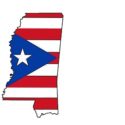An ideologically biased and weakly reasoned argument against statehood (“Statehood Does Not Guarantee Better Quality of Life,” Ibrahim Perez, El Nuevo Dia, September 20), can easily be recognized as anti-statehood propaganda. The absurd argument presented against statehood backfired instead and rallied supporters of Puerto Rico’s admission to the Union as a State.
The discredited editorial commentary asserted that Puerto Rico enjoys a better quality of life as a U.S. colonial dependency than Mississippi, ranked 50th among States of the Union in economic prosperity. The falsehoods of this comparison promote historical and economic ignorance that undermines informed democratic self-determination for 3.5 million U.S. citizens in Puerto Rico.
Each U.S. territory that became a State has experienced sustained growth, most starting out as the poorest State before becoming more prosperous and attaining a higher ranking. Even the least wealthy State of Mississippi has a level of prosperity and quality of life that is the envy of billions of people in hundreds of small and large nations in our hemisphere and around the world.
The deeply flawed op-ed makes the argument that under statehood all U.S. citizens in Puerto Rico will have the same quality of life as low-income African-Americans in Mississippi. It is true in both Puerto Rico and in Mississippi that some people are richer and some are poorer. Assuming that the average quality of life in Puerto Rico would match the quality of life of the poorest people in Mississippi, even if the current average annual income of $18,000 in Puerto Rico more than doubles to match Mississippi’s $40,000 per capita annual income, is absurd — and bad math.
The misguided commentary reports the overall poverty rate for all citizens in Mississippi (23%) is half the poverty rate of U.S. citizens in Puerto Rico (46%). Yet, the editorial asserts that under statehood the poverty rate in Puerto Rico will be over 40%, which is the poverty index for poor black people in Mississippi.
In this twisted logic most if not all U.S. citizens in the State of Puerto Rico will be doomed to a quality of life comparable to poor blacks in Mississippi, even though Puerto Rico has a vastly different racial composition and cultural history. For example, it is not irrelevant that a large majority of the population in Mississippi were slaves when it was admitted as a State of the Union in 1817. It is also easy to see, comparing Mississippi and Puerto Rico over the past 50 years, that Mississippi is gaining ground and Puerto Rico is losing it.
Of course, even the poor in Mississippi have voting rights in federal elections and live in a State with twice the average household income as the present failed colonial client state of Puerto Rico. Mississippi benefits from twice the level of health care spending, and far higher overall federal contributions to maintain the social safety net. Even being the least wealthy State of the Union is far greater prosperity compared to the present territorial regime, devised by the “commonwealth” party junta to exploit our colonial status in the name of “autonomy” that is an illusion.
The warped commentary in El Nuevo Dia notes average life expectancy in Puerto Rico today (78) is slightly higher than Mississippi’s (75). If U.S. citizens in Puerto Ricans live longer than citizens in Mississippi now with half the wealth, it is a perversion of logic to presume life won’t get better and we will not live longer in the future with twice the prosperity, twice the resources.
This blatantly irrational anti-statehood propaganda exploits the legacy of racism for anti-statehood fear-mongering. If that view of statehood were consistent with the Puerto Rican experience in the American era, why have millions of U.S. citizens from Puerto Rico moved to the mainland to increase their quality of life in a State? When Puerto Ricans move to a State, do we join and stay permanently in the ranks of the poorest people with the lowest quality of life?
If a Puerto Rican who moves to any State starts at entry-level employment, do we stay in that entry-level job for the rest of our lives? If a U.S. citizen from Puerto Rico moves to any State from Florida to Hawaii and struggles financially, has a health problem or needs public welfare support for a time, do we remain poor and unhealthy for the rest of our lives?
Recall the genius in medical and humanitarian endeavors achieved by black Puerto Rican Jose Celso Barbosa, who rose above the legacy of slavery in the Spanish colonial era. Think about the triumphal artistic success of Lin Manuel Miranda telling the story of how our nation was born. The true story of Puerto Ricans in the States is one of increased opportunity and upward mobility.
Since U.S. citizenship for Puerto Rico was attained in 1917, the 50 States have always been and remain the land of opportunity. Statehood empowers our people to use our God given gifts of creative talent to overcome the limitations of our circumstances, and outsmart whatever vestiges of discrimination we once faced.
The Puerto Rican story in the States is one of struggle rewarded for most by upward mobility and success. When we have the full empowerment of equal U.S. citizenship in the culturally hospitable context of our own homeland, we will show the other 50 States and the world that that the American idea is alive and well in Puerto Rico as the 51st State.
This post was written for PR51st by Howard Hills, author of Citizens Without a State.








2 Responses
[…] in to Reply Anti-Statehood Propaganda Unpersuasive – Puerto Rico 51st October 19th, 2016 […] were slaves when it was admitted as a State of the Union in 1817. It is […]
this is awful, what about the atrocities committed by the us?